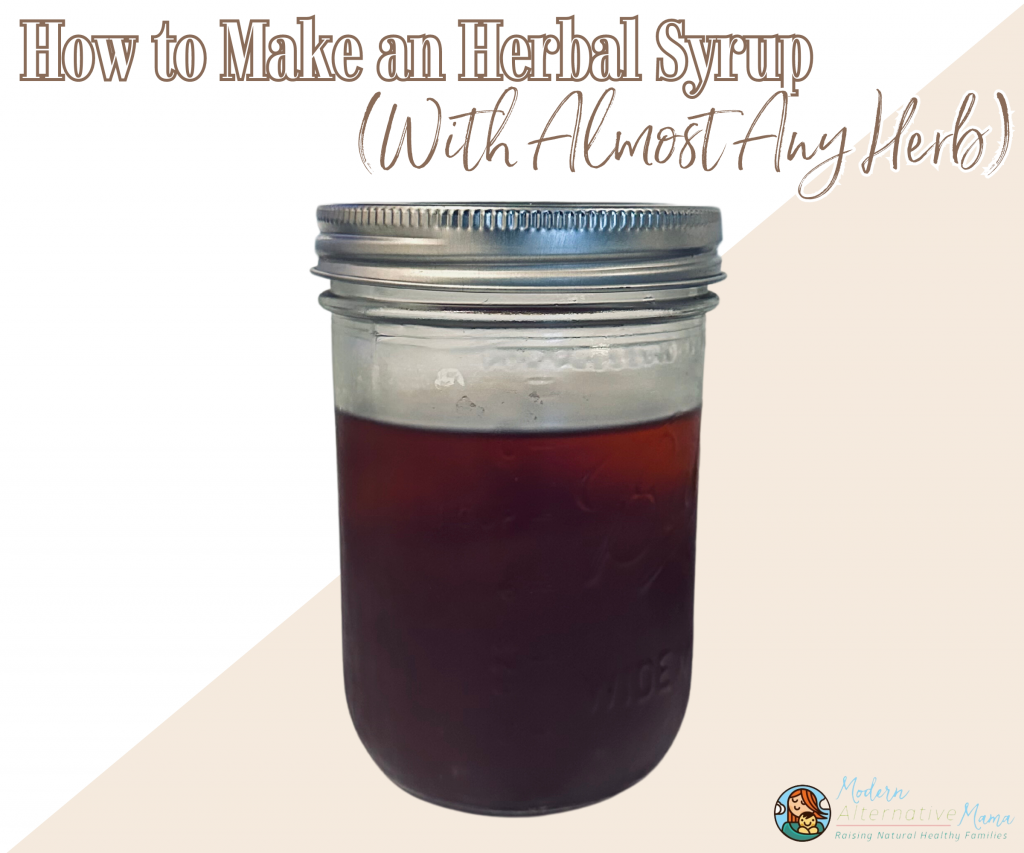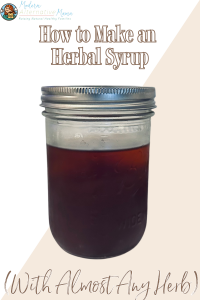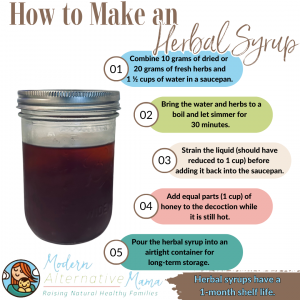Herbal syrups have many benefits, far beyond being used for medicine. Since herbal syrups are highly nutritious and brimming with health benefits, they can also serve as a functional food. Win-win!
After covid, I developed an irregular heart rate and telogen effluvium. Instead of running to the doctor, I monitored it closely and researched herbs that promote heart health.
When I was ready to make my own herbal syrup, I stuck to a single herb to not overcomplicate the process. I chose an herb that supported my heart and aided hair loss – hawthorn berry. My first attempt was Hawthorn Berry Herbal Syrup, which went well.
Now for the moment you’ve been waiting for – how to make an herbal syrup.
How to Make an Herbal Syrup
If you read our blog, How to Make an Herbal Extraction (With Any Herb), you know herbal syrups combine infusions or decoctions with equal parts honey or sugar to extract and preserve fresh or dried herbs. When making herbal syrup, honey or sugar is used as a preservative, so sugar alternatives like stevia or monk fruit will not work.
Although stevia or monk fruit will not work, Some alternatives to honey and sugar that can be replaced at a 1:1 ratio include glycerin, coconut sugar, and maple syrup. These three options will not interfere with preserving the herbal syrup or shorten its shelf life (1).
Let’s discuss step-by-step how to make herbal syrup, but first, basic supply recommendations.
Recommended Supplies:
- Mason jar
- Herbs of choice (I use Starwest Botanicals or Frontier Co-Op)
- Honey (I use raw honey)
Step 1: Combine 10 grams of dried or 20 grams of fresh herbs and 1 ½ cups of filtered water in a saucepan.
Step 2: Bring the water and herbs to a boil and let simmer for 30 minutes (this process is a decoction water extraction). After simmering, the liquid level should have reduced to roughly 1 cup.
Step 3: Strain the liquid before adding it back to the saucepan.
Step 4: Allow the decoction to cool down before adding equal parts (1 cup) of honey to the decoction while it’s still warm (adding while it’s hot could result in losing some of the honey’s medicinal properties). Be sure to mix the honey into the decoction until the honey is dissolved.
Step 5: Set the syrup aside to cool down the rest of the way before pouring it into an airtight container for long-term storage.
Storage: It will last about one month when stored in the refrigerator. If you notice a rancid smell or visible mold at the top, it has gone bad.
Herbal syrups are great for children; they’re sweet and disguise bitter-tasting herbs. Herbal syrups are thicker than the other extraction methods, making them ideal for sore throats and coughs as they coat the throat. Herbal syrups typically last about a month in the refrigerator.
Whether you’re a newbie or a seasoned herbalist, I hope this post was able to answer questions you may have had. Remember, herbalism isn’t all or nothing; every herbalist doesn’t look the same. It is okay to start slow, at your own speed, and figure out what works for you. Trial and error is the key, but hopefully, this post takes away most of the errors and leaves you with plenty of successful herbal remedies. Either way, with practice (and time), you’ll be making herbal remedies for everyone in your life in no time.








